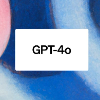Purpose: Large language models (LLMs) have proven performance for certain diagnostic tasks, however limited studies have evaluated their consistency in recommending appropriate medication regimens for a given diagnosis. Medication management is a complex task that requires synthesis of drug formulation and complete order instructions for safe use. Here, the performance of GPT 4o, an LLM available with ChatGPT, was tested for three medication management tasks. Methods: GPT-4o performance was tested using three medication tasks: identifying available formulations for a given generic drug name, identifying drug-drug interactions (DDI) for a given medication regimen, and preparing a medication order for a given generic drug name. For each experiment, the models raw text response was captured exactly as returned and evaluated using clinician evaluation in addition to standard LLM metrics, including Term Frequency-Inverse Document Frequency (TF IDF) vectors, normalized Levenshtein similarity, and Recall-Oriented Understudy for Gisting Evaluation (ROUGE 1/ROUGE L F1) between each response and its reference string. Results: For the first task of drug-formulation matching, GPT-4o had 49% accuracy for generic medications being matched to all available formulations, with an average of 1.23 omissions per medication and 1.14 hallucinations per medication. For the second task of drug-drug interaction identification, the accuracy was 54.7% for identifying the DDI pair. For the third task, GPT-4o generated order sentences containing no medication or abbreviation errors in 65.8% of cases. Conclusions: Model performance for basic medication tasks was consistently poor. This evaluation highlights the need for domain-specific training through clinician-annotated datasets and a comprehensive evaluation framework for benchmarking performance.
翻译:暂无翻译



